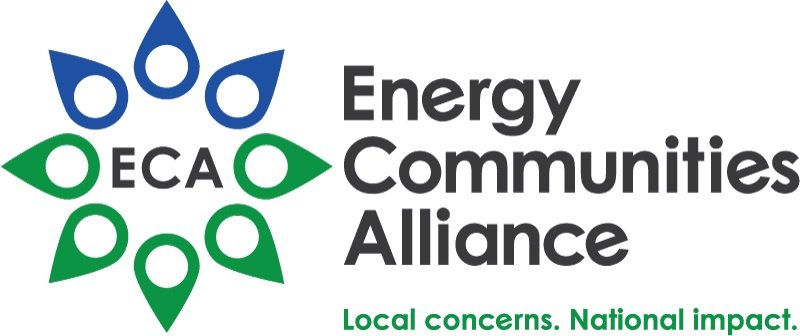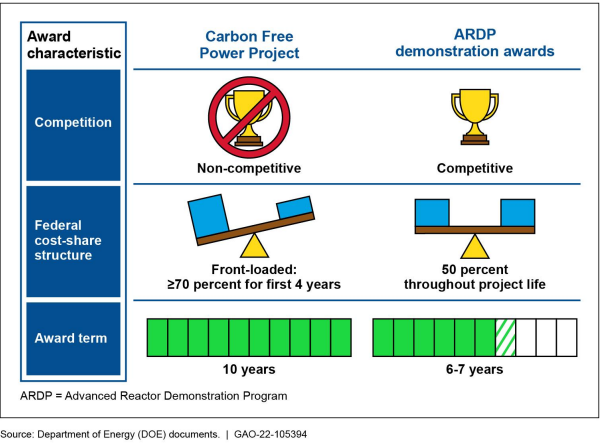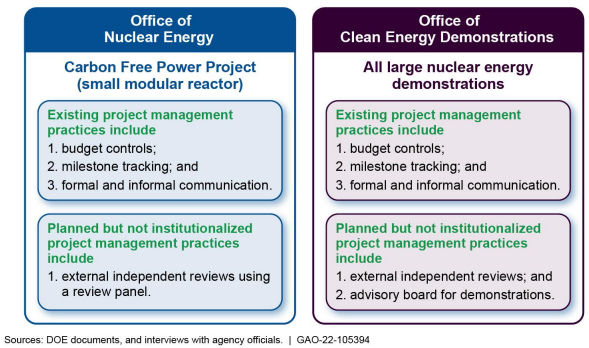DOE should institutionalize oversight plans for new reactor demos, report finds
Nuclear power plants account for about 20% of the electricity and half of the carbon-free electricity generated in the U.S. However, economic challenges have led to the closure or planned shutdown of multiple nuclear power plants.
To address these challenges, the U.S. Department of Energy (DOE) has made awards to projects that demonstrate first-of-a-kind small modular and advanced reactors. In fiscal year 2021, DOE made awarded $4.6 billion to support three projects in the development of new reactor types that are expected to bring improvements.
The U.S. Government Accountability Office (GAO) was asked to review DOE’s management of nuclear energy demonstration awards. Their recent report (1) describes awards DOE has made to support the demonstration of small modular and advanced reactors; and (2) examines actions DOE is taking to manage risks associated with awards.
AWARDS TO SUPPORT SMALL MODULAR AND ADVANCED REACTOR DEMONSTRATION
DOE awarded the Carbon Free Power Project (CFPP) about $1.4 billion for a small modular reactor plant near Idaho Falls, Idaho. CFPP expects to complete construction in August 2029 and begin delivering power by December 2029.
Under the Advanced Reactor Demonstration Program, DOE awarded TerraPower about $2 billion to complete the NatriumTM Demonstration in Wyoming by 202823 and awarded X-energy about $1.2 billion to complete the Xe-100 Demonstration in Washington State by 2027.
DOE HAS TAKEN SEVERAL ACTIONS TO MANAGE RISKS BUT HAS NOT FULLY INSTITUTIONALIZED OVERSIGHT PLANS FOR ITS NUCLEAR ENERGY DEMONSTRATION AWARDS
DOE has taken several actions to manage risks associated with the three demonstration awards. Specifically, DOE uses existing project management practices such as budget controls, milestone tracking, and other procedures to manage risks. In addition, the Office of Nuclear Energy (NE) and the newly established Office of Clean Energy Demonstrations (OCED) plan to use additional project management practices, such as external independent reviews, to oversee the awards.
However, neither office has institutionalized its plans by documenting these additional project management practices. GAO found that documenting these processes, including the use of external independent reviews, would allow DOE to share best practices across offices during the course of these multi-year awards, potentially resulting in stronger federal oversight of the projects and improved project performance.
GAO recommends that the Secretary of Energy ensure that NE and OCED coordinate and institutionalize via documentation their processes for providing oversight for large nuclear energy demonstration projects, including the use of external independent reviews, steps for addressing any risks identified, and criteria for which projects should use these processes
To read the full report, please click here.


